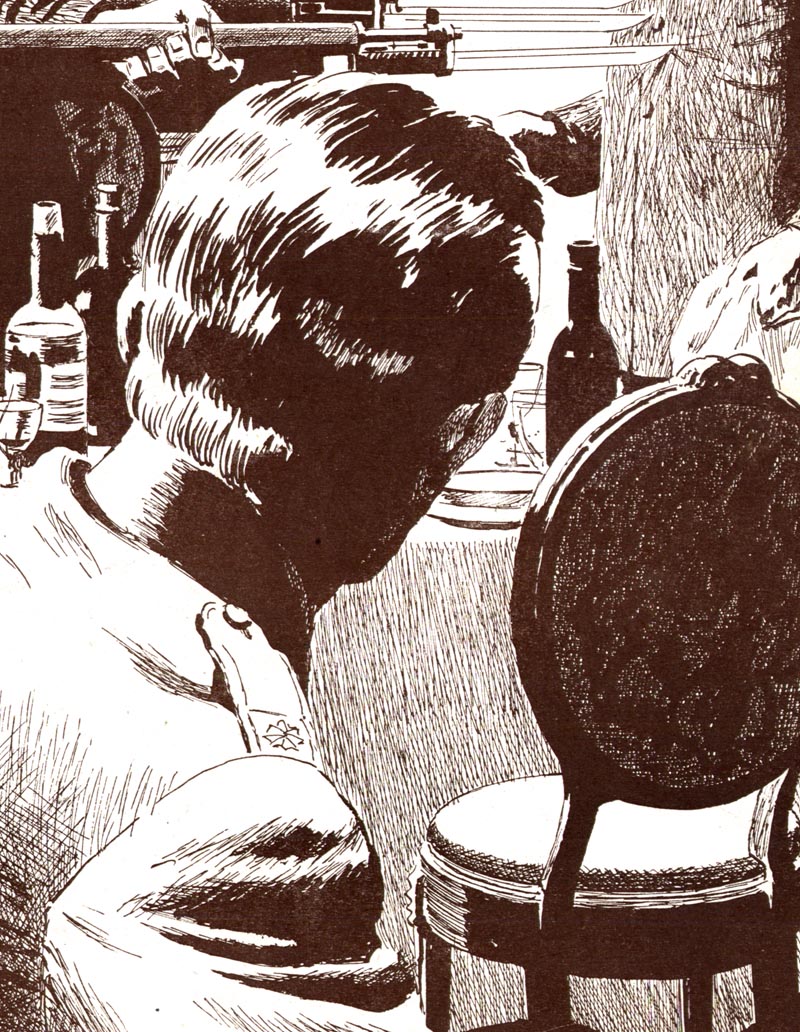
Q: Why did you choose art as a career?
A: Because I like to make pictures.

Q: Must an artist have talent?
A: Yes. Most children have talent and like too make pictures. Its a desire to record what they see. Its a desire to say something. I believe talent is fundamentally a desire. If the desire is strong and compelling, the talent develops. To learn to draw and paint is hard, and to do so, the desire must be strong enough for the artist to go through the effort of development.

Q: What kind of training did you have?
A: None. If there is such a thing, I am self-taught. I had a strong desire to make pictures. My talent was limited. I simply developed it as best I could by plain hard work.

Q: Was there a turning point in your career?
A: I don't think there was a turning point. I just climbed the long ladder one rung at a time. I married young and had to make a living. I felt I could be a successful artist if I could make saleable pictures. I did. The career developed. At the time you were supposed to learn how to draw. No one I knew drew from photos. You thought it out and drew it. You learned to study objects and people and to transpose what you saw into pictures you made. Experience taught me the requirements. I formed very objective opinions as you can tell by the answers to these questions. And I have pretty well lived by them. This is hard work, but I survived.

Q: What illustrators influenced you most as a young artist?
A: When I started, Harvey Dunn, Dean Cornwell, Pruett Carter, Walter Biggs, Henry Raleigh, John LaGatta, Frank Hoffman and Gruger were the major illustrators. This was in the twenties. They influenced every young illustrator. How much I was influenced, others can tell better than I.

I think all of them influenced me in different ways.

Q: How did your style develop?
A: I really think it developed as I solved printing and mechanical problems.

Q: How important is originality?
A: I think you have to be yourself. Originality is not a specific term. I feel you have to rest your case on how you think. If you think good, you'll make it. If you are not progressing, you'd better re-evaluate yourself. Don't complain about the world being wrong.

Q: What does the illustrator communicate to his audience? More particularly, what do you try to communicate?

A: I try to communicate to the best of my ability the advertising or selling requirement clearly and convincingly. In fiction illustration, I believe the success of the picture usually lies in the selection of what you illustrate. It should be in character and show feeling for the story and be compelling in concept and treatment.

To deviate from this, I feel, is to be dishonest to the reader.

Concluded tomorrow.
* My Fred Ludekens Flickr set
I like Ludekens BS-free thoughts on art.BTW I love the proportions of that Russki soldier on the left.Didnt realise they ran a dwarf unit,what happened to his legs?
ReplyDeleteHah! Well, I guess Ludekens' attempt to show the soldier running forward in "deep perspective" doesn't quite read as well as one would hope - but I think you already realized that, Chad ;^)
ReplyDeleteAnd I'm with you on Ludekens' "shoot from the hip" attitude about illustration. Very refereshing!
A recurring technique that I really like,(and will borrow), is the monochromatic color with white points of interest that lead your eyes to the main subject. Very effective and clean.
ReplyDeleteI like what he said about desire and talent. I have seen fellow artists with such a strong desire make it even though their skill level did not match their desire. And it also follows that a few that come to mind chose a style that communicated clearly and lent itself well to advertizing...which in tern had larger budgets.
ReplyDeleteFrank; What I love about Ludekens' statement is that I have also seen the reverse of what you saw: extremely talented artists who didn't make it because of a lack of desire. In art school I was blown away by some of the gifted artists in my classes ... the ability to draw well seemed as effortless as breathing to them! To discover years later that they did not succeed confirmed my belief that great natural talent can be a handicap if it isn't married to desire.
ReplyDeleteLeif,
ReplyDeleteBingo...I have seen the same thing as well. Desire is that fire in the belly that is the important wild card.
I have also seen amazing artists who could not take changes or critique well. Its all part of the business.
This comment has been removed by the author.
ReplyDelete